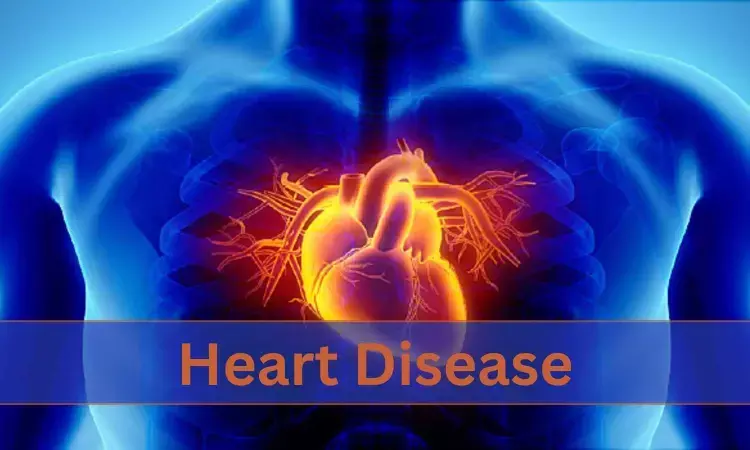- Home
- Medical news & Guidelines
- Anesthesiology
- Cardiology and CTVS
- Critical Care
- Dentistry
- Dermatology
- Diabetes and Endocrinology
- ENT
- Gastroenterology
- Medicine
- Nephrology
- Neurology
- Obstretics-Gynaecology
- Oncology
- Ophthalmology
- Orthopaedics
- Pediatrics-Neonatology
- Psychiatry
- Pulmonology
- Radiology
- Surgery
- Urology
- Laboratory Medicine
- Diet
- Nursing
- Paramedical
- Physiotherapy
- Health news
- Fact Check
- Bone Health Fact Check
- Brain Health Fact Check
- Cancer Related Fact Check
- Child Care Fact Check
- Dental and oral health fact check
- Diabetes and metabolic health fact check
- Diet and Nutrition Fact Check
- Eye and ENT Care Fact Check
- Fitness fact check
- Gut health fact check
- Heart health fact check
- Kidney health fact check
- Medical education fact check
- Men's health fact check
- Respiratory fact check
- Skin and hair care fact check
- Vaccine and Immunization fact check
- Women's health fact check
- AYUSH
- State News
- Andaman and Nicobar Islands
- Andhra Pradesh
- Arunachal Pradesh
- Assam
- Bihar
- Chandigarh
- Chattisgarh
- Dadra and Nagar Haveli
- Daman and Diu
- Delhi
- Goa
- Gujarat
- Haryana
- Himachal Pradesh
- Jammu & Kashmir
- Jharkhand
- Karnataka
- Kerala
- Ladakh
- Lakshadweep
- Madhya Pradesh
- Maharashtra
- Manipur
- Meghalaya
- Mizoram
- Nagaland
- Odisha
- Puducherry
- Punjab
- Rajasthan
- Sikkim
- Tamil Nadu
- Telangana
- Tripura
- Uttar Pradesh
- Uttrakhand
- West Bengal
- Medical Education
- Industry
Elevated plasma methylmalonic acid levels associated with increased CV events in patients with CAD

Researchers at University of Bergen have found in a new study that elevated plasma methylmalonic acid predicts increased risk of acute myocardial infarction and mortality in patients with suspected or verified coronary heart disease.
Methylmalonic acid (MMA) is a substance produced from the breakdown of aminoacids, odd-chain fatty acids and cholesterol in the body. MMA concentration in blood is reported to be elevated in patients with heart diseases and kidney impairment, and higher plasma MMA is considered a marker of vitamin B12 deficiency.
"In our study, we analyzed the association of plasma MMA with the risk of acute myocardial infarction and death in 7662 participants of two large, independent cohorts of patients evaluated for either suspected coronary heart disease or verified coronary heart disease”, says lead author of article, researcher Indu Dhar at the University of Bergen.
They found that across both cohorts higher MMA in plasma was associated with reduced renal function and low B12 status at baseline. However, higher plasma MMA predicted increased long-term risk of acute myocardial infarction and total and cardiovascular deaths independent of renal function and B12 status.
“This may suggest that risk relationship between MMA and outcomes is not explained by vitamin B12 status or kidney function alone”, says Dhar.
Another important finding findings from this research was the positive association between plasma MMA and risk of dying due to non-cardiovascular causes primarily in patients evaluated for suspected coronary heart disease, thus warranting further research to explore MMA in a wider perspective beyond cardiovascular diseases.
"Future studies should also investigate the potential role of MMA as an important regulator of energy and lipid metabolism", Dhar concludes.
Reference:
Indu Dhar, Vegard Lysne, Arve Ulvik, Gard F. T. Svingen, Eva R. Pedersen, Espen Ø. Bjørnestad, Thomas Olsen, Robert Borsholm, Johnny Laupsa-Borge, Per M. Ueland, Grethe S. Tell, Rolf K. Berge, Gunnar Mellgren, Kaare H. Bønaa, Ottar K Nygård First published: 22 January 2023 https://doi.org/10.1111/joim.13610
Dr Kamal Kant Kohli-MBBS, DTCD- a chest specialist with more than 30 years of practice and a flair for writing clinical articles, Dr Kamal Kant Kohli joined Medical Dialogues as a Chief Editor of Medical News. Besides writing articles, as an editor, he proofreads and verifies all the medical content published on Medical Dialogues including those coming from journals, studies,medical conferences,guidelines etc. Email: drkohli@medicaldialogues.in. Contact no. 011-43720751


